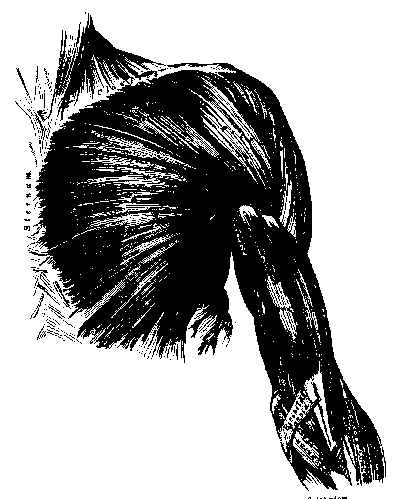 My father brings home the blood of horses on his hands, his rough, calloused, thick-fingered hands.
He comes home from the slaughterhouse where the government pays him to kill old useless horses that arrive from all over the island. The blood comes encrusted and etched on the prints and wrinkles of his fingers, under his nails, dark with the dirt, too, the filth and grime, the moons of his fingers pinked by the residue, his knuckles skinned from the endless work. Sticky and sweet-scented is the blood of these horses, horses to feed the lions in the new zoo which is moving from Havana to Lenin's Park, near where we live. Dark blood, this blood of the horses my father slaughters daily to feed zoo lions.
My father brings home the blood of horses on his hands, his rough, calloused, thick-fingered hands.
He comes home from the slaughterhouse where the government pays him to kill old useless horses that arrive from all over the island. The blood comes encrusted and etched on the prints and wrinkles of his fingers, under his nails, dark with the dirt, too, the filth and grime, the moons of his fingers pinked by the residue, his knuckles skinned from the endless work. Sticky and sweet-scented is the blood of these horses, horses to feed the lions in the new zoo which is moving from Havana to Lenin's Park, near where we live. Dark blood, this blood of the horses my father slaughters daily to feed zoo lions.I ask how many horses it takes to feed a single lion. This makes my father laugh. I watch as he washes and rinses the dried-up blood from his forearms and hands, those hands that kill the horses, the hands that sever through skin and flesh and crush through bone.
My father, the dissident, the gusano, the Yankee-lover, walks to and from work on tired feet, on an aching body. He no longer talks to anybody, and less to us, his family. My mother and my grandmother, his mother. But they leave him alone, to his moods, for they know what he is being put through. A test of will. Determination. Salvation and survival.
My father, under the tent on the grounds of the new zoo, doesn't say much. He has learned how to speak with his hands. Sharp are the cuts he makes on the flesh. The horses are shot in the open fields, a bullet through the head, and are then carted to where my father, along with other men, do the butchering. He is thirty (the age I am now) and tired, and when he comes home his hands are numb from all the chopping and cutting. This takes place in 1969.
Years later when we are allowed to leave Cuba and travel to Madrid, to the cold winter of Spain, we find ourselves living in a hospice. The three of us, my father, mother and me, in a small room. (My grandmother died and was buried in Havana.) Next door is a man named Izquierdo, who keeps us awake with his phlegmy coughs. From the other side of the walls, his coughing sounds like thunder.
We try to sleep; I try harder but the coughing seeps through and my father curses under his breath. I listen to the heat as it tic-tacs coming through the furnace. My father tries to make love to my mother. I try not to listen. The mattress springs sound like bones crushing. My mother refuses without saying a word. This is the final time she does so tonight. There is what seems like an interminable silence, then my father breaks it by saying to my mother, "If you don't, I'll look for a Spanish woman who will." Silence again, then I think I hear my mother crying. "Someone," my father says, "will want to, to . . ."
And I lay there on my edge of the mattress, sweat coming on from the heat. My eyes are closed and I listen hard, and then the sound of everything stops. This, I think, is the way death must sound. Then my father begins all over again. The room fills with the small sounds ... the cleaver falls and cuts through the skin, tears through the flesh, crushes the bone, and then there is the blood. All that blood. It emerges and collects on the slaughter tables, the blood of countless horses.
Sleep upon me, I see my father stand by the sink in the patio of the house in Havana. He scrubs and rinses his hands. The blood dissolves slowly in the water. Once again I build up the courage to go ahead and ask him how much horse meat it takes to appease the hunger of a single lion.
©1997, Arte Público Press